"Words have the power to both destroy and heal. When words are both true and kind, they can change our world." - The Buddha
Edward Bulwer-Lytton wrote, “The pen is mightier than the sword.” He included it in his historical play Richelieu; Or the Conspiracy. MacArthur famously retorted, “whoever wrote that has obviously never encountered automatic weapons.”
Both points are well taken.
I think words matter.
I’ve spent my entire career trading words and ideas for money and actions. I’ve convinced people to buy things, juries to do things, voters to elect people and support measures, bills in Congress to become law, speeches that have rallied people to causes, my kids to take out the trash, my wife to go out with me (and ultimately to get married), and you to read this article.
Words matter a lot—nearly everything I’ve achieved with my pen.
They matter because words frame ideas and thinking.
A few days ago, I innocuously replied to a reply to someone on substack asking, “What can we do?” to someone who had posted that all of this was “a coup!” (referring to the completely out-of-control acts of the President, Elon Musk, and the entirety of the Trump Administration) and this was in response to Bob Reich making the same claims of “coup” as well on Substack. To both of them, this was my reply:
Everyone wants to call this “a coup.” Those saying so misunderstand the nature of the problem, and this is why people are so stumped as to what to do.
A coup is an illegitimate seizure of power. But Musk isn’t seizing power—he was appointed by the elected president. He is acting as an agent of the regime, not in defiance of it. So the problem isn’t that he’s usurping authority—the problem is that the regime itself is corrupt, and Musk is an extension of that corruption.
What’s happening here isn’t a power grab—it’s a criminal enterprise running the government from the inside.
Musk’s actions are blatantly illegal. The Impoundment Control Act of 1974 makes it unlawful for the executive branch to withhold or redirect funds appropriated by Congress. The conflict of interest statute (18 U.S.C. § 208) prohibits federal officials from making decisions that affect their own financial interests. Yet Musk is shutting down USAID programs, seizing government computers and servers, and deciding how money is directed—all while heading companies that receive government contracts and subsidies.
This isn’t a coup because there’s no overthrow—just a repurposing of government to serve a private network of interests.
The solution to a coup is counterforce. The solution to corruption is law enforcement. And the only institution left with the power to enforce the law is Congress. If they refuse to act—if they let this slide—then the issue isn’t that Musk or Trump have "taken over." It’s that corruption has fully consumed the system, and the rule of law is over.
This is the last test. Either Congress acts, or the gig is up.
Simple enough, right?
Well, okay, the reply has been restacked, quoted, quoted, engaged with, quoted, quoted, and quoted, and restacked, and I’ve gotten direct messages and restacked…
I’ve had people say I’m a fascist. (Which, ok, no, I’m not.)
I’ve had people say I’m splitting hairs. (Which, ok, no, I’m not.)
I’ve had people say I’m defending the Administration. (Which, wow, is okay, but no, I’m not doing that.)
Wow… ok, I get it. People are having a nervous breakdown over this.
One person went so far as to write an entire stack about it. Now, I don’t know if this was directly specifically at me or what, but I had about 20 people send it to me going, “HA! Take that asshole!” (or something to that effect.)
I replied to that article on his Substack but also wanted to reply here. In the academy, when someone takes the time to write a piece, it’s only common courtesy to take the same time and write something back. I think that’s worthy here because this was a thoughtful piece. I said so, and I think it is.
But as I thought about it more and listened to the ruckus of the people stacking (and clapping back at me), I get what you’re angry about, and I also think it is crucial why we call this criminal enterprise and not a “coup.” Dr. Snyder, Secretary Reich, and others, respectfully, you’re all wrong. And being wrong isn’t just some semantic issue, it’s a fundamental issue that hinders what we’re all trying to do here.
STOP TRUMP. It matters a lot to get this “right.”
Let me explain why.
Coups, Collapses, & Insurrections. What’s the difference?
If you read Timothy Synder’s article, you get the impression that any time the government is overthrown, it is a coup.
Typically, yeah it is. But not always. We’ve experienced multiple types of government overthrows and collapses.
It’s the morning of September 11, 1973, in Santiago, Chile. Fighter jets scream overhead as the military moves in. Inside the presidential palace, Salvador Allende refuses to surrender. He makes a final radio address before the military breaches the building. A few hours later, General Augusto Pinochet assumes control. This is a coup d’état—a swift, calculated seizure of power by the military, orchestrated from within the system itself.
Fast forward nearly two decades to August 1991, Moscow. A group of Soviet hardliners, unhappy with Mikhail Gorbachev’s reforms, attempt to overthrow him. Tanks roll into Red Square. They declare a state of emergency. It has all the markings of a coup—military involvement, an effort to replace leadership—but something is missing: total control.
The people push back. Boris Yeltsin, standing atop an armored vehicle, defies the plotters. The military hesitates. After just three days, the coup crumbles. It was an attempted coup that failed—but its failure accelerates something even bigger.
Just four months later, on December 25, 1991, Gorbachev resigns. The hammer and sickle flag is lowered for the last time over the Kremlin. The Soviet Union doesn’t fall to a coup, or an insurrection—it simply ceases to exist. One by one, its republics declare independence. What was once a superpower dissolves, not through a single moment of violence, but through political unraveling. This is a collapse.
Now, contrast this with an insurrection.
It’s January 6, 2021, in Washington, D.C. A crowd gathering near the Capitol, fueled by claims that the 2020 election was stolen. The rhetoric is fiery. Then, chaos erupts. Barricades are breached. Lawmakers evacuate. The rioters aren’t part of the military or political elite—this isn’t an inside job. It’s an uprising, a violent challenge to authority rather than a strategic power grab. The goal isn’t to install a new leader through institutional control but to disrupt a process to challenge legitimacy. This is an insurrection.
Historically, insurrections often stem from mass movements rather than elite factions. The Whiskey Rebellion of 1794 saw frontier farmers rise up against federal taxes. The Paris Commune of 1871 was a radical challenge to authority, where the people—not the military—took control of the city. These were not orderly power transfers; they were chaotic, populist uprisings.
The key distinctions?
A coup happens from within, often led by the military or political elites, aiming for control.
A collapse is when a system falls apart, unable to hold itself together.
An insurrection is a rebellion from the outside, chaotic, driven by mass unrest.
A coup replaces leadership.
A collapse erases a system.
An insurrection defies authority.
One topples a government.
One erodes it.
One shakes its foundations.
And history is filled with all three.
What we’ve experienced in this country under the Trump Presidency was an insurrection. We should stop calling those people rioters. It wasn’t a riot; it was an insurrection.
This isn’t a coup. I’ve shown you what a coup looks like, that is not what Elon Musk (or President Trump) are doing.
Damn, it feels good to be gangsta
The reality is this: the American people elected a felon to be President of the United States.
So I’ll say this perhaps in the starkest terms I can write:
What did people think would happen?
Did people believe that Trump would somehow obey the rule of law? Did they believe that somehow he would feel the call to public service? Did they believe that he would somehow feel constrained by our democratic values and traditions? Did they not believe that he would not follow through on what he said:
Well, it was more than “day one.”
Trump’s Business Model Is Crime—and the Presidency Was His Get-Out-of-Jail-Free Card
Donald Trump has spent his entire career daring the law to stop him—and for decades, it hasn’t. From real estate scams to casinos, fraudulent charities, and Trump University, his business playbook has always been the same: stretch the rules until they break, deny everything, and drag out the consequences until the other side gives up.
However, unlike white-collar criminals who eventually ran out of places to hide, Trump pulled off something unprecedented: winning the presidency.
And with that, the game changed.
The Presidency as a Legal Shield
Trump’s 2016 victory wasn’t just a political win—it was a golden parachute that let him outrun the legal consequences of his decades-long fraud operation. Suddenly, all those pesky lawsuits? He could stall them. All those investigators looking into his businesses? He could fire them. The federal government—the very institution designed to enforce the law—was now something he could bend in his favor.
And he did.
He stacked the Justice Department with loyalists who slowed down investigations, blocked congressional subpoenas, and pardoned criminals who refused to testify against him. The Trump Organization, which had spent decades bending financial rules in New York real estate, kept raking in cash, and the presidency offered even bigger opportunities: foreign governments booked rooms at Trump hotels, donors poured money into his businesses, and taxpayers funded trips to his golf resorts.
For four years, he kept the scheme going.
Post-Presidency: The Reckoning (Almost)
When Trump lost in 2020, the dam broke.
The Trump Organization was convicted of tax fraud in 2022. The 17 felony counts proved that the company had spent years dodging taxes through off-the-books compensation schemes, including luxury perks like apartments, car leases, and tuition for executives.
Then came the civil fraud trial in New York, where a judge ruled that Trump had lied about his net worth by billions to secure better loans. The fraud was so evident that the judge quickly reached a verdict. (The trial did not appear before a jury because of procedural errors on Trump’s legal team's part.) The penalty? $355 million in fines and a three-year ban on running businesses in New York.
And let’s not forget the hush money case - sex, lies, lawyers, and checks galore. Trump became the first U.S. president ever convicted of a crime, found guilty on 34 felony counts for falsifying business records related to the Stormy Daniels payoff. The whole scheme—using his lawyer as a fixer, reimbursing him through “legal fees,” and covering up campaign finance violations—was classic Trump: commit the crime, lie about the crime, then act like the victim when caught.
For a moment, it looked like the law had finally caught up to him.
But Then—He Won, Again.
If 2016 was Trump’s golden parachute, 2024 was the jackpot.
Despite all the lawsuits, all the convictions, and public scandals—he clawed his way back into the White House. And just like before, he started using it to shield himself the second he had power.
Investigators? Fired.
Prosecutors? Defunded.
Judges who ruled against him? Enemies of the state.
Every administration makes controversial appointments, but Trump’s second-term nominees aren’t just unqualified—they’re actively hostile to the very institutions they’re being tapped to lead. This isn’t a cabinet; it’s a wrecking crew.
Secretary of Defense – Known as the “DUI hire,” this nominee’s most notable achievement is a history of reckless behavior, yet now they’re in charge of the most powerful military on the planet.
Attorney General – A woman who once moved a scheduled execution to accommodate her fundraising calendar—because when it comes to justice, cash flow comes first.
Director of National Intelligence – A conspiracy theorist who actively spread disinformation and embraced America’s enemies, now in charge of overseeing intelligence operations worldwide.
FBI Director – A man who has aligned himself with the January 6 insurrectionists, promised to dismantle the bureau, and vowed to do whatever Trump demands—no questions asked.
Secretary of State – A diplomat in name only, he believes Israel can do no wrong, foreign aid is a scam, and international treaties are just bureaucratic red tape.
EPA Administrator – A staunch advocate for eliminating all environmental regulations, fully committed to protecting polluters over the planet.
And this is just the shortlist.
Unlike 2016, when Trump still had to balance his cabinet with at least a few competent people, this time, there are no moderating forces. Every single nominee is there for one reason: they have pledged total, unwavering allegiance to Donald J. Trump.
No experience required.
No qualifications necessary.
Just loyalty.
Everything he learned from his first term—about how to weaponize the government, about how to break laws without consequences—he’s now doing at full speed.
And this time, it’s not just about keeping his businesses afloat. It’s about making sure he never has to leave power again.
A coup is an illegal seizure of power—an overthrow, a breach, an attempt to topple the system and install a new order. But that’s not what’s happening here. There’s no violent takeover, no sudden putsch, no tanks in the streets. The problem isn’t that power is being stolen—the problem is that the power structure itself has been converted into a criminal enterprise.
Elon Musk isn’t seizing control of the government. He’s been handed the keys. And he’s using them exactly the way a guy like him would: to loot, to punish, and to ensure the gang keeps running the show.
This isn’t a coup.
This is organized crime.
Musk’s Game: The Hostile Takeover of the Executive Branch
When Musk was formally brought into the administration, it was clear what his role would be: the enforcer. Congress didn’t appoint him, wasn’t confirmed for anything, wasn’t elected. But he didn’t need to be. The President made him an agent of the regime—with a blank check and no oversight.
It started with USAID. Musk declared the agency a “criminal enterprise” (ironic) and shut it down overnight. USAID employees were locked out of their systems, their offices raided, and computers seized. This wasn’t a policy change. It was a bust. USAID wasn’t a rogue operation—it was a decades-old agency handling international development and humanitarian aid. But that didn’t matter. Musk and his guys waltzed in like a mob crew taking over a neighborhood, shutting off the lights and running the place into the ground.
Then came the Treasury. Musk was granted direct access to the federal payment system—yes, the system that processes every government transaction, from Social Security checks to foreign aid transfers. It’s the financial nervous system of the U.S. government, and now Musk’s people are inside, tapping the wires and deciding who gets paid and who doesn’t. It’s a level of control that no unelected person should have.
They didn’t seize power. They just walked in and took over—like any good crime family would. And once they had the money? They went for the cops.
Musk’s people started targeting Inspectors General, gutting the internal watchdogs who might blow the whistle on what’s happening. At least a dozen IGs were fired or forced out, some of them overseeing critical investigations. If you were looking into government corruption, fraud, or misuse of funds? You were gone.
Meanwhile, they started moving on the FBI, the CIA, and the Office of the Director of National Intelligence (DNI). The goal? Purge anyone disloyal. Career officials—intelligence analysts, counterterrorism experts, cyber warfare specialists—started getting pushed out under the guise of “realignment.” But everyone knew what was really happening: they were consolidating power, clearing the way for loyalists, and making sure no one could put up a fight.
And if you weren’t fired outright? The administration attempted to buy you out.
An offer you couldn’t refuse.
Musk’s team started making cash offers to federal employees to leave their jobs. We’re not talking about normal severance packages or retirement incentives—this was a direct, private buyout. The kind of thing you do when you don’t want someone sticking around to cause problems.
This Is Not a Coup—This Is a Racket
"My father is no different than any other powerful man, any man with power, like a president or senator." (Michael Corleone - The Godfather)
A coup implies a struggle—a contested fight for power. But there’s no fight here. Musk isn’t storming the castle. He’s been invited in. The President and his allies didn’t lose control of the government—they repurposed it for their own ends. The executive branch isn’t governing anymore—it’s acting as an arm of a private criminal syndicate.
And here’s the thing about criminal syndicates: they don’t respond to outrage.
People think if they keep yelling about how illegal this all is, something will happen. But a crime family doesn’t care if you catch them red-handed—they only care if there’s someone with the power to stop them.
That’s why words matter. A coup is stopped by force.
Crime syndicates are stopped by enforcement.
I know for many people, potato.. potathto…
Does It Matter What We Call This? Absolutely.
There’s always a moment, when chaos unfolds, where people argue over what to call it. Is this a coup? A power grab? A constitutional crisis? A regime change? Does the label even matter?
Yes. It matters.
It matters for two reasons—both of which determine whether anything gets done about it.
How You Frame the Problem Defines the Solutions Available
Words shape reality. The way something is labeled determines what tools people think they can use to stop it.
If you call this a coup, the implied solution is counterforce. Military intervention, mass mobilization, and possibly even civil conflict. That’s what the word invokes. And here’s the issue: that’s not an option. The military isn’t stepping in. There’s no armed resistance movement forming in the streets. That’s not how this plays out.
But if you call it what it actually is—a criminal enterprise running the government from the inside—then the solution becomes obvious: law enforcement. Investigations. Oversight. Prosecutions. Congressional action. There’s a set of legal and institutional tools designed specifically to take down organized crime, and those tools are still available.
When you misdiagnose a problem, you waste time chasing the wrong solutions. Call it a coup, and people will sit around waiting for some heroic, dramatic counterforce that never comes. Call it a criminal enterprise, and suddenly, every corrupt act is something that can be investigated, prosecuted, and stopped.
Which brings us to the second, even bigger reason this matters:
People’s Political Alignment Changes Based on the Narrative
Call it a coup, and you immediately alienate half the country.
Think about it: many people in the MAGA movement actually want an overthrow. They believe the system has been rigged against them for decades. When you frame this as a coup, you’re reinforcing their belief that Trump is some kind of revolutionary figure tearing down a corrupt establishment.
You are, in effect, telling them that the thing they voted for is happening.
But call it what it actually is—a crime syndicate looting the country—and suddenly, the narrative shifts.
It’s really hard for even the most hardcore Trump supporter to stand up and say they’re in favor of “the mafia” siphoning government money into private pockets. It’s tough to rally a movement around “letting the crooks run free.”
This is where political pressure matters. People will fight crime before they fight a coup.
Americans understand theft. They understand corruption. They understand rich, powerful people lining their pockets while screwing over everyone else.
They don’t all agree on politics. They don’t all agree on government. But nobody likes being conned.
If this fight is framed as “stopping a coup,” it stays locked in partisan warfare. If it’s framed as “taking down criminals who are robbing the country blind”, suddenly, everyone has a reason to care.
Language Shapes the Fight—So Use the Right One
This isn’t about semantics. This is about strategy.
Trump and his people aren’t taking over the government in some grand ideological war. They’re running a racket. They are consolidating power for the purpose of looting the treasury, eliminating accountability, and turning the federal government into a personal cash machine.
Call it what it is. A criminal enterprise. A mafia state. A racketeering operation.
Because the second people see it that way? They’ll want it shut down.
The Last Firewall: Congress, Oversight, and the Fight for What’s Left
For all the hand-wringing about Trump’s corruption, for all the breathless media coverage, for all the lawsuits and court battles and expert analyses—none of it matters if Congress doesn’t act.
That’s the bottom line. That’s the last test.
Trump and his orbit of wreckers aren’t operating in secret. They aren’t hiding what they’re doing. They’re broadcasting it. They’re dismantling government in broad daylight, gutting institutions, defying court orders, stacking agencies with sycophants, and openly ignoring the law. They aren’t trying to break the system.
They’re trying to own it.
And the only thing standing between them and total control is Congress.
What Congressional Oversight Can—and Must—Do
Congress isn’t just a legislative body. It’s the only branch of government with the power to expose corruption, subpoena documents, hold officials accountable, and—when necessary—remove them. If this government is going to be salvaged from Trump’s wreckage, it’s going to be through Congressional oversight, investigations, and enforcement of the law.
And here’s what that actually looks like:
1. Subpoena Everything and Force Accountability
The first step is relentless, aggressive oversight. That means dragging every official Trump installs into public hearings and forcing them to answer under oath.
The Attorney General needs to explain why their Justice Department is ignoring blatant violations of federal law.
The DNI and FBI Director need to be grilled on their efforts to purge law enforcement agencies of career professionals in favor of Trump loyalists.
The Secretary of Defense needs to answer for any illegal orders or political interference in the military.
The EPA head needs to explain why they’re dismantling environmental protections while coordinating with the industries they’re supposed to regulate.
If officials refuse to appear, Congress has inherent contempt powers—which means they can hold them accountable directly instead of waiting for Trump’s DOJ to pretend to care. Use those powers. If they don’t show up? Send the Sergeant-at-Arms to get them.
Trump’s people count on weak enforcement. They assume subpoenas will get ignored, that consequences will be delayed, that the system will bog down in legal fights. That only happens if Congress lets it.
2. Follow the Money and Cut It Off
The most effective weapon Congress has isn’t just hearings—it’s the power of the purse.
No more blank checks. Every department that’s been hijacked for Trump’s personal power plays needs budget restrictions, direct oversight, and immediate audits.
Freeze funds for agencies engaged in retaliatory purges, political prosecutions, or violations of the law.
Track every dollar going to Trump’s network—whether it’s funneling federal funds into his businesses, laundering taxpayer money into slush funds, or rerouting foreign aid into private hands.
Every time Trump or his lackeys try to weaponize the federal budget to reward loyalists and punish enemies, Congress can shut it down.
3. Investigate and Expose Illegal Conduct—Loudly
Public exposure matters. If Congress doesn’t bring these fights into the open, the public won’t know what’s happening until it’s too late. Everything must be televised. Every document must be made public. Every lie must be dismantled in real time.
If the administration is violating the law, the public needs to see it.
If intelligence officials are covering up foreign interference, we need to know.
If Trump is ignoring court orders, Congress needs to broadcast it to the nation.
Trump’s entire strategy hinges on muddying the waters, making the truth seem complicated, dragging out consequences until people stop paying attention. That doesn’t work if Congress floods the zone with sunlight.
4. Use Every Legal Mechanism to Hold Trump’s People Accountable
If agencies won’t enforce the law, Congress must force them to.
Refuse to confirm nominees who pledge allegiance to Trump over the Constitution.
File legal challenges against executive overreach and illegal orders.
Force the courts to rule on Trump’s abuses.
And if Trump’s administration refuses to comply with court rulings? That’s when Congress has to take the final step.
5. Impeach. Remove. Prosecute.
Congress has one final tool that cuts through everything: impeachment.
If Trump is breaking the law, impeach him.
If his Cabinet is violating their oaths, impeach them.
If his Attorney General is obstructing justice, remove them.
Trump and his people are banking on the idea that no one has the stomach to actually enforce the law. That’s how they’ve always operated—whether in business, in politics, or in government.
Dare them to push the boundary. Then make them regret it.
The Bottom Line: Congress
There’s a dangerous assumption that the system will hold on its own, that norms and institutions will somehow withstand this assault without direct intervention. That’s a lie. Institutions don’t survive because they’re inherently strong. They survive because people fight for them.
Right now, Congress is the only institution left that can stop this.
If it doesn’t—if it lets Trump steamroll oversight, if it lets his appointees dismantle the rule of law, if it chooses inaction over confrontation—then the problem isn’t just Trump.
The problem is that Congress let him win.
This is the last chance. The last firewall. The last test.
I keep saying this, but it’s true:
We can protest. We can demonstrate. We can yell and scream.
But, if Congress won’t act?
Then, the rule of law is finished. The Republic is lost.
Then, the only thing left will be a real coup or a civil war.
(As an aside, as I wrote this piece, I couldn’t help myself. Being partially of Italian heritage, I had to write this piece listening to Vic Damone, Jerry Vale, and Al Martino. “La Famiglia Arancione” and “Il Don del Tang” don’t even have decent music for being a crime family. Al Greenwood? Jerry Goldsmith? Simple Minds? Fughetaboutit! I have also decided to make this post open to everyone to comment - since I think this issue is important. Enjoy.)



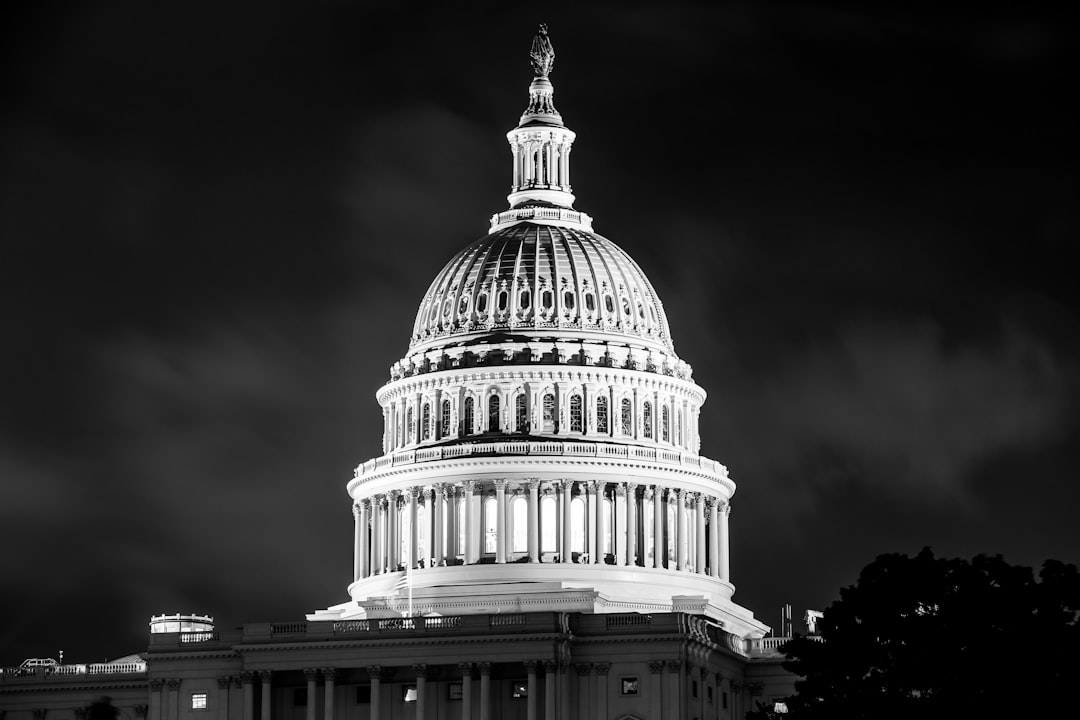

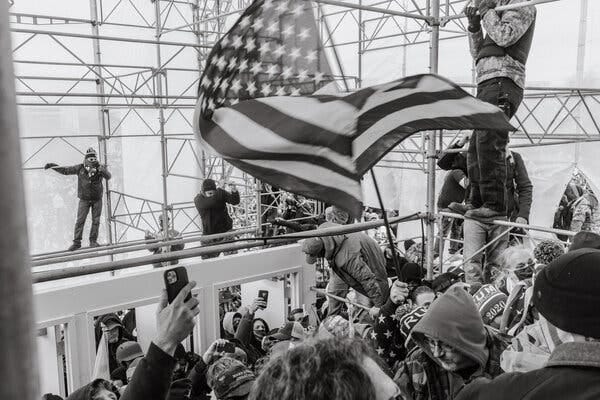
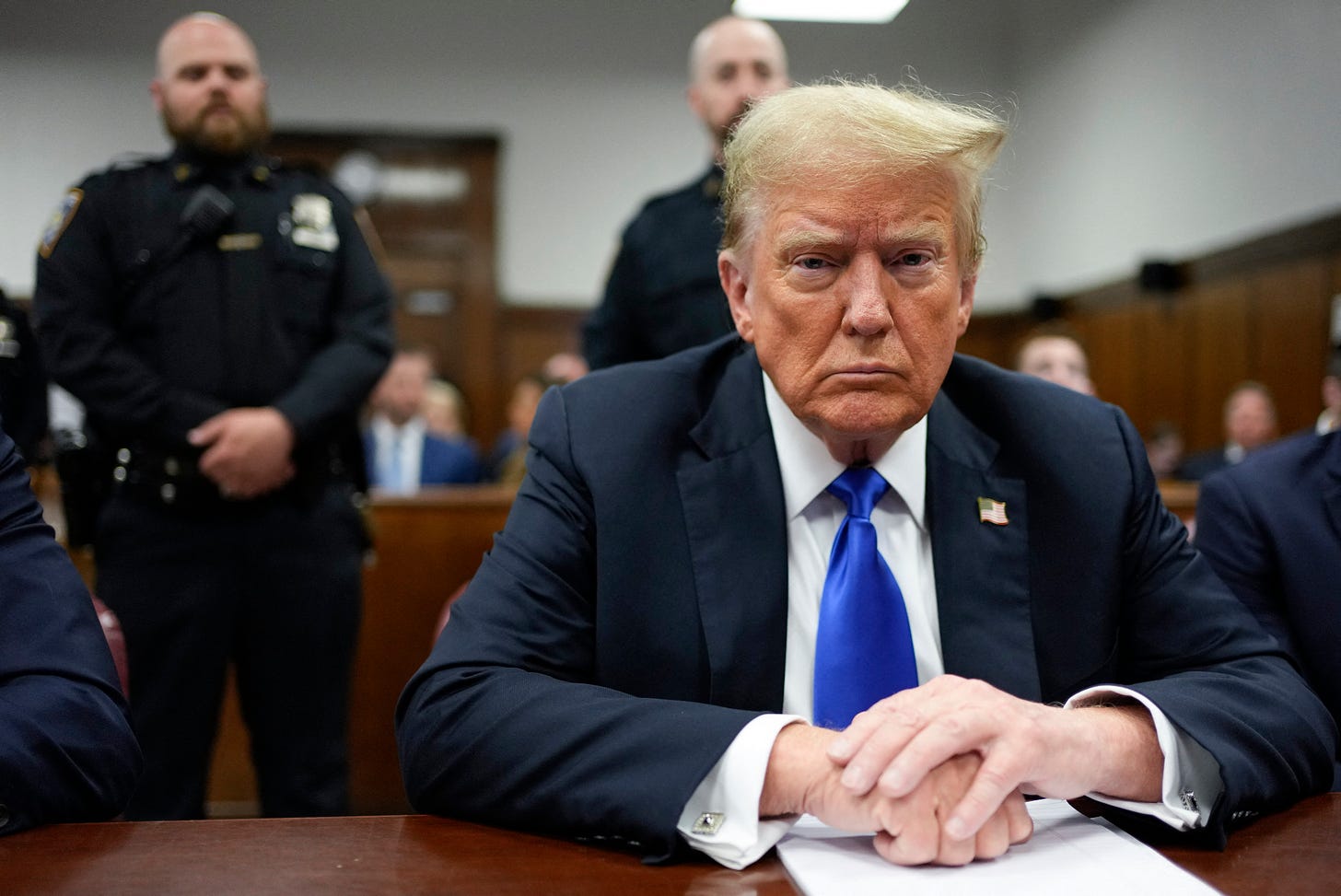

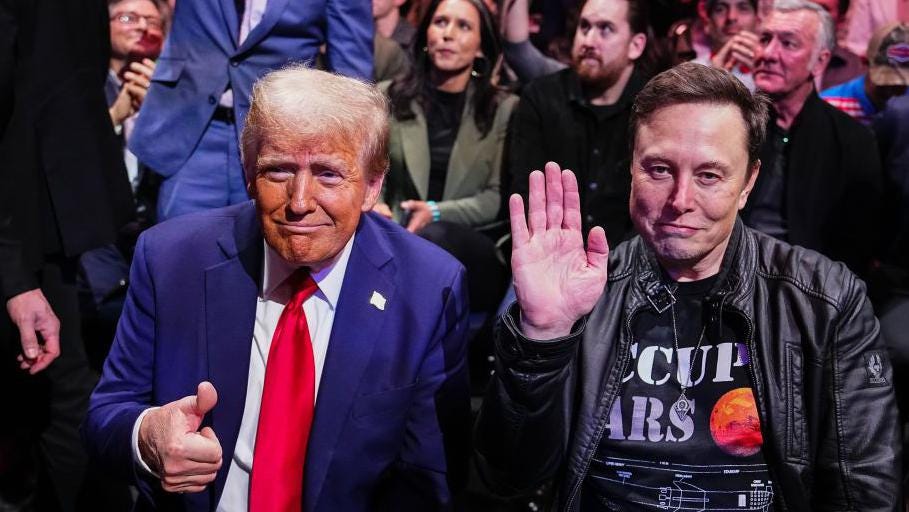

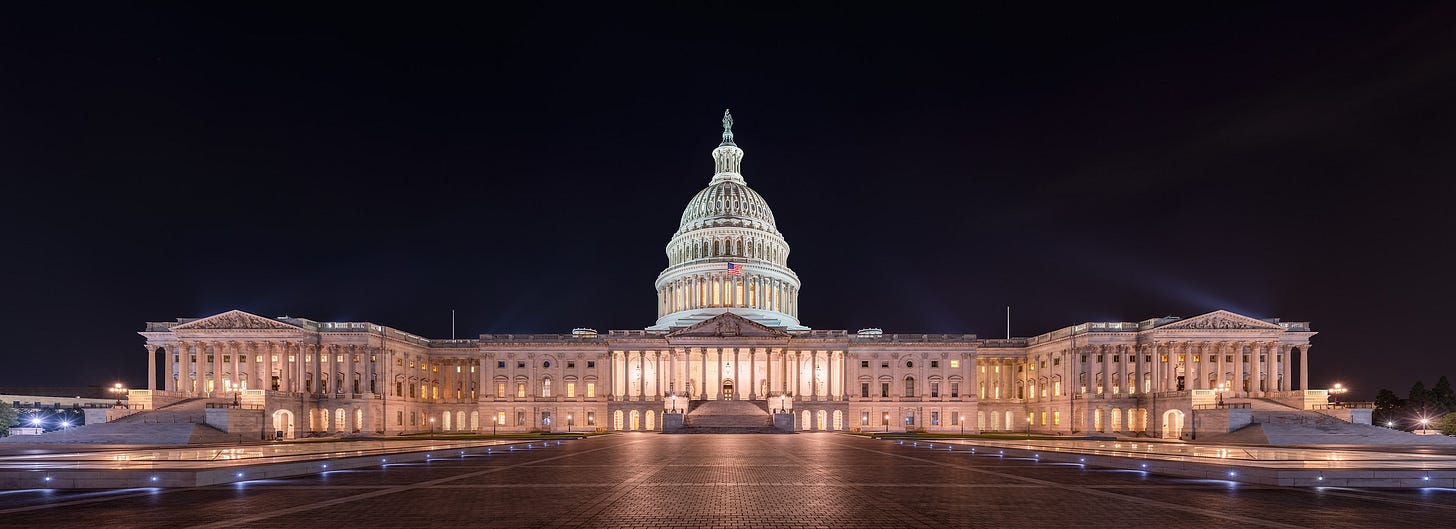
I think you are spot on with what you are saying, Sarah Kendzior has been saying the same thing for years: our country and countries around the world are being taken over by an international crime syndicate. They have no allegiance to any country, it is a conglomeration of ultra wealthy, powerful mafiosos. One problem with getting congress to act: they have the republicans apparently in their side
Congress is not going to act. They have already started playing their political games to ensure they protect the FOTUS at all costs. The main thing that needs to be obliterated is that of the career politician. That was not what our founding fathers had intended. Term limits for all of Congress would eliminate most of these shenanigans.